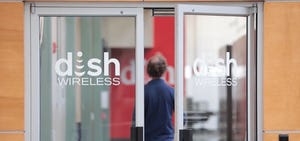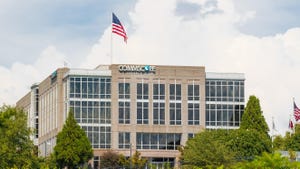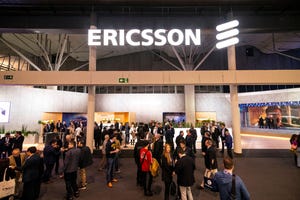Public WiFi Comes to Paris 638950
Alcatel-Lucent and SFR will run a Paris public WiFi network, while Ericsson is building one in Greece
March 2, 2007

Two more European cities are building out municipal broadband access networks, with Paris adopting public WiFi ahead of its fiber access plans and the Greek city of Trikala building a mix of fiber-to-the-building connections and WiFi access points.
In Paris, Alcatel-Lucent (NYSE: ALU) will build, and French mobile operator SFR will manage, a network of 400 free public hotspots on behalf of the Mayor's office. (See Paris Plans Citywide WiFi.)
The city's mayor, Bertrand Delanoe, announced in July 2006 that such free public access is a "decisive tool for international competition." He is also keen to see Parisians hooked up with high-speed fiber-to-the-home connections that would be affordable for all the city's citoyens. (See Paris Plans FTTH Network.)
Paris is currently on course to become the FTTH capital of Europe, as a number of carriers and utilities are competing to provide high-speed connections to homes and businesses. (See FT Fleshes Out FTTH , Neuf Unit Wins FTTH Deal, Iliad Buys Into French FTTH, and Iliad Plans €1B FTTH Build.)
The Paris WiFi network, which will see access points located in parks, squares, libraries, and public areas, is due to be launched in the third quarter of 2007. No financial details were released.
While Paris proper is home to more than 2 million people (more than 11 million if you include the suburban sprawl), the Greek city of Trikala has only 52,000 inhabitants, but its plans will resonate with many other medium-sized municipalities that want to provide a modern communications infrastructure to homes and businesses.
The city's local government has created a specific initiative, E-Trikala , and joined INEC (International Network of e-Communities) to share information and developments with other municipal network teams. The entire cost of the project, including planning, infrastructure, installation, outbound connectivity, and ongoing management is a modest €80 million (US$105 million) up to 2015.
E-Trikala installed its first 10 free public WiFi access points at the end of 2005, and signed up 3,500 users during its first year. Now the project is entering its second phase, so the project has hired Ericsson AB (Nasdaq: ERIC) as prime integrator to deploy a broader infrastructure and help develop services. (See Ericsson Wires Up Greek City.)
The Swedish vendor will deploy equipment from other suppliers, including E-Trikala's other main technology partner, Cisco Systems Inc. (Nasdaq: CSCO), to build a 15-kilometer metro optical network that will link various city buildings, though not individual homes, and connect a minimum further 10 WiFi access points to provide wireless access coverage throughout Trikala.
The initiative's plans for the coming year also include the development of services such as VOIP and videoconferencing, increasing the bandwidth coming into the city, and increasing the number of connected users to at least 6,000.
Trikala is not alone in its connectivity aspirations. Seven other municipalities in central Greece are planning the same kind of development, and all the cities and towns have signed a cooperation agreement to create what they are calling "the first Digital Community in Greece."
That's a model similar to the one spreading in Sweden, where more than 150 towns have built their own, mostly fiber-based, networks and are planning to connect to each other using a common IP backbone.
— Ray Le Maistre, International News Editor, Light Reading
You May Also Like










